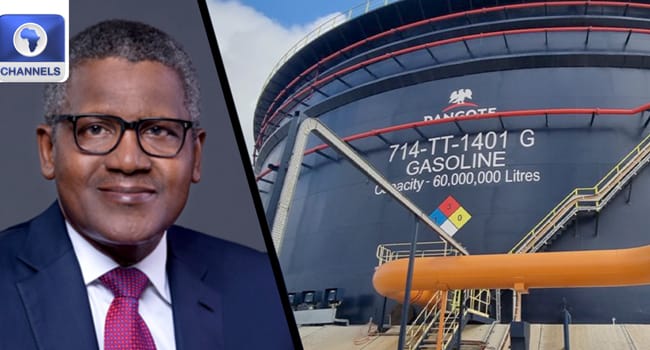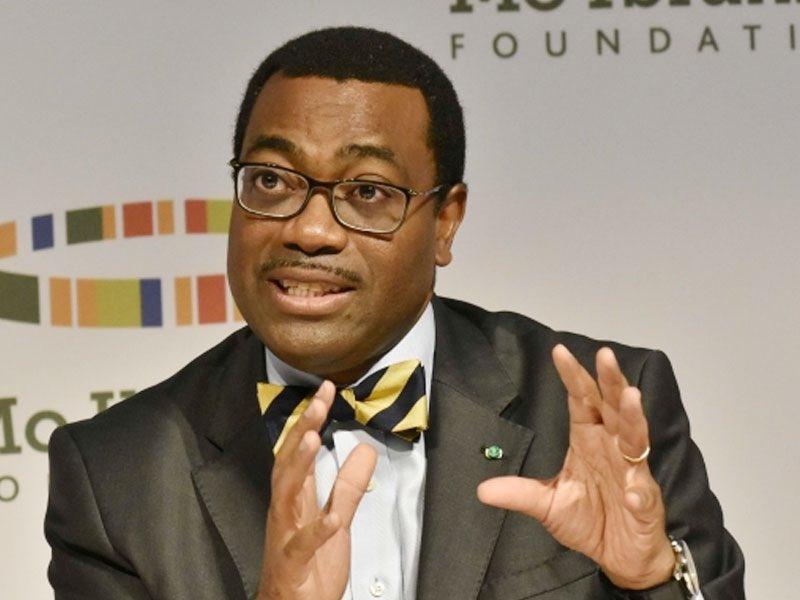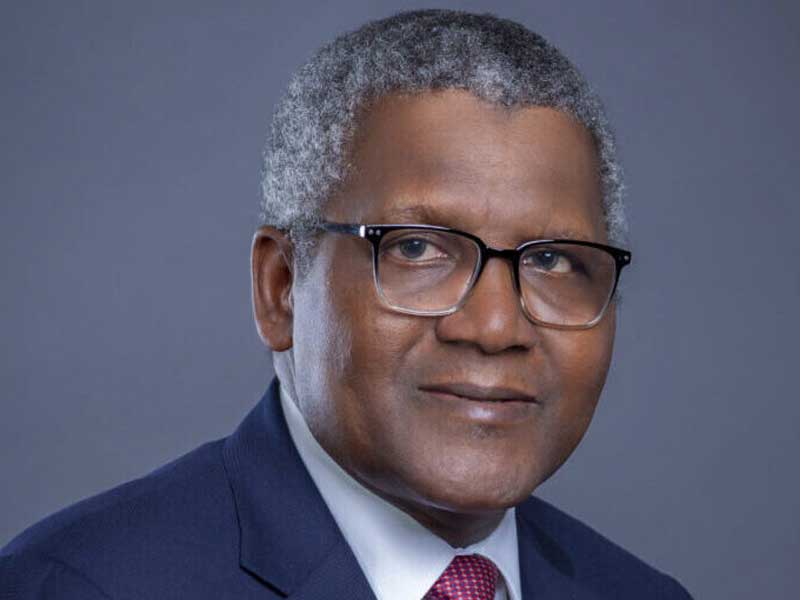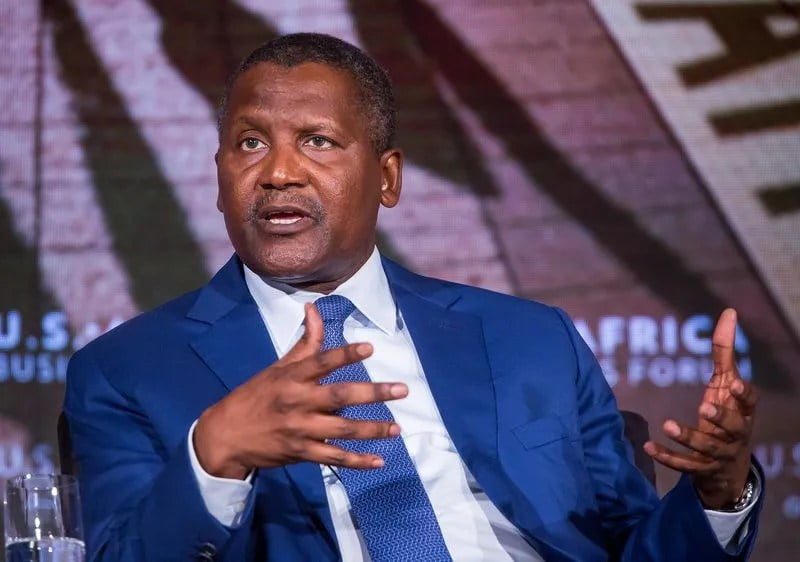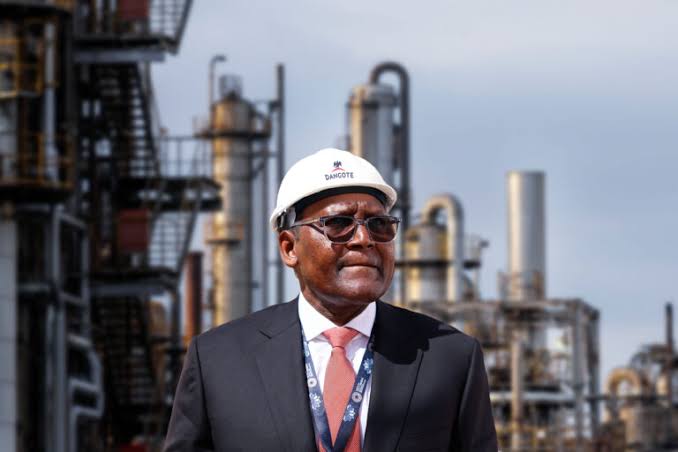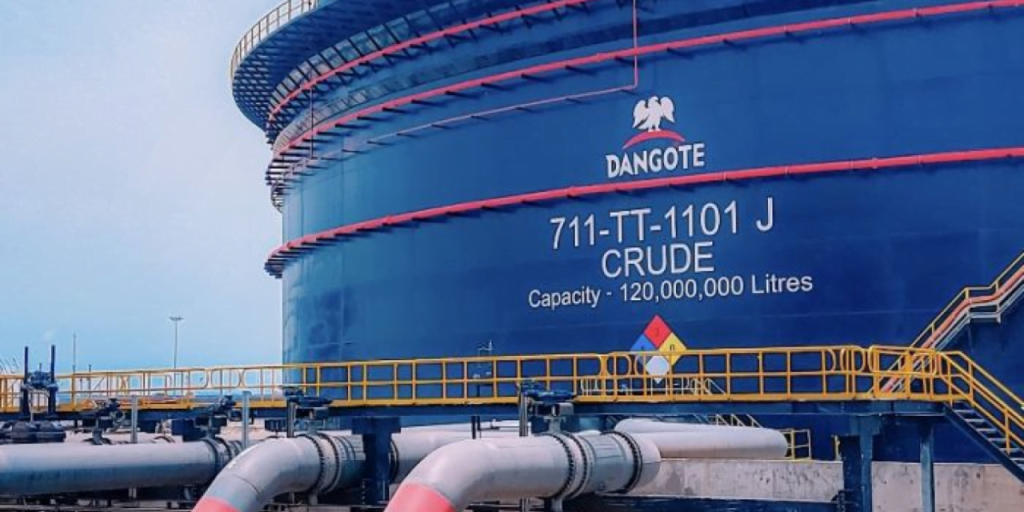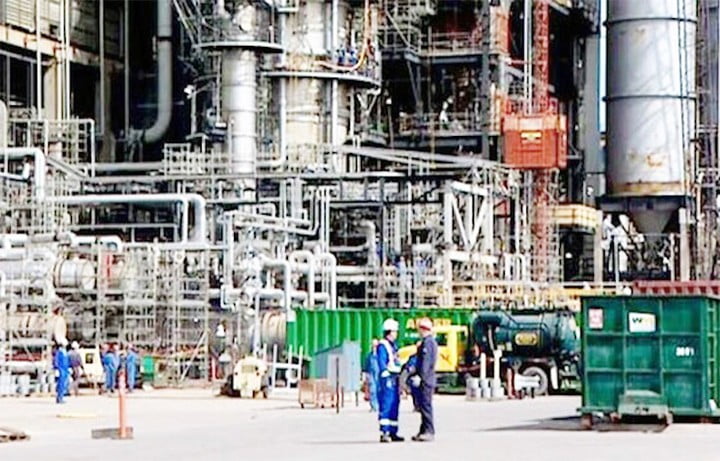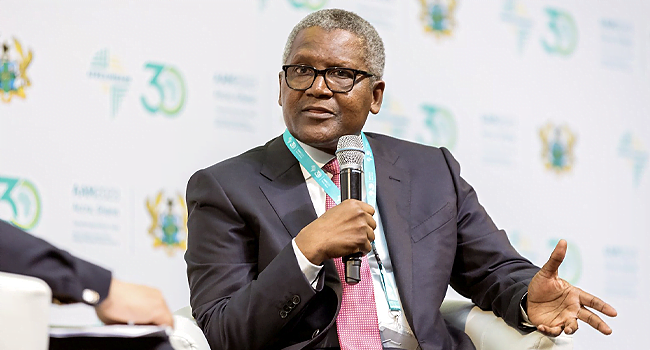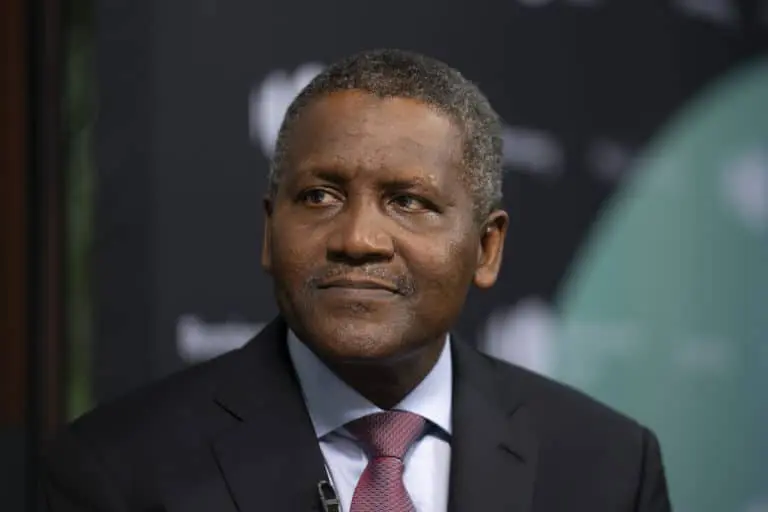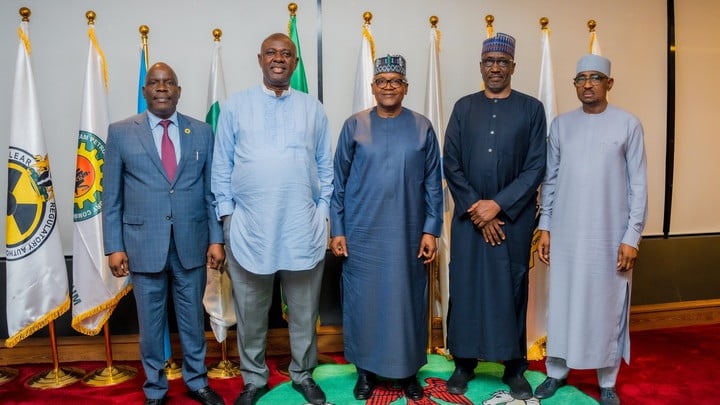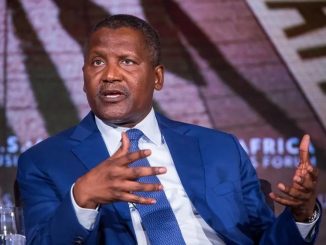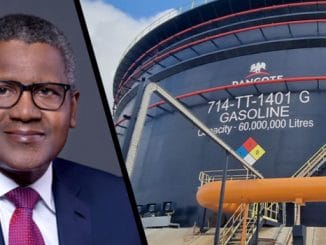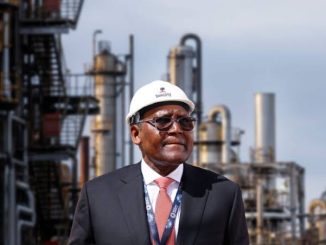President of the Dangote Group, Alhaji Aliko Dangote, has said that Nigeria’s daily petrol consumption figure is higher than what the country consumes, stressing that the petroleum sector is riddled with corruption.
Dangote said the figure was bloated by some individuals for personal gains, especially during the fuel subsidy era.
However, while marketers agreed with Dangote on Monday that there is corruption in the petroleum sector, they argued that the daily petrol consumption volume fluctuates and cannot be put at a single figure, saying it should be around 40 million barrels per day.
Also, crude oil refiners said there should be fresh findings to determine the country’s real consumption figure; otherwise, the debate and argument would continue for a long time.
Speaking with members of the Global CEO Africa who visited the Dangote Petroleum Refinery recently, Dangote said he did not want to venture into the petroleum sector because of the corruption in the system. According to him, the country’s daily petrol consumption was not up to 40 million litres.
The PUNCH recalls that the Nigerian Midstream Petroleum Regulatory Authority said in the fourth quarter of 2024 that the Yuletide pushed petrol consumption figures to 50 million litres per day.
The Chief Executive of the Nigerian Midstream and Downstream Petroleum Regulatory Authority, Farouk Ahmed, disclosed that the country’s daily petrol consumption hovered around 45 million and 50 million litres at that time.
“The current volume that goes out in the market is ranging between 45 and 50 million litres, including the buffer that we have. But currently it’s ranging between 45 and 50 million litres per day. We see that a lot of activity is going on now because it is normally a high-demand period in the fourth quarter, leading to the yuletide. Still, after that, we can possibly see the consumption go down just because of the prices,“ Ahmed said last year.
In February, the NMDPRA said the figure fell from 66 million litres per day in 2023 to 50 million litres after the removal of the subsidy by President Bola Tinubu.
“Let me reconfirm that from year to year, we saw an increase in the demand for PMS by 2021, 2022, up to 2023, and just before the current administration came in, the daily PMS supply sufficiency was always more than 60 million, averaging about 66 million a day for PMS.
“Following Mr President’s withdrawal of subsidy, the announcement on May 29, 2023, we immediately saw a steep decline in consumption, and between then and as we speak, we’ve continued to do plus or minus 50 million litres. That’s a considerable reduction in volumes,” the Executive Director, Distribution Systems, Storage and Retailing Infrastructure at NMDPRA, Ogbugo Ukoha, said in February.
However, Dangote vehemently disagreed with the NMDPRA on the figures, saying they did not reflect Nigeria’s daily petrol consumption. Dangote said Nigeria’s daily petrol consumption figure is 33 million litres, 17 million litres below NMDPRA’s data.
He stated that the figure was inflated because the product was once subsidised, even as high as 90 million barrels at a time, noting that the country does not have that many vehicles on its roads.
“The fuel requirement of Nigeria, which we believe, based on our own estimation, is a consumption of 33 million litres per day. But, you know, because it was a subsidised item, they bloated the numbers, at one point, even to 90 million litres. But we don’t have that number of vehicles. So, real consumption is about 33 million litres of petrol,” Dangote stated.
He noted that daily aviation fuel consumption was the lowest, with 3 million litres a day, due to the few flights in the country’s aviation industry. The billionaire said diesel consumption was 10 million litres and not the 14 million litres being claimed by the regulator.
“So in all, we believe 46 million litres (of petrol, diesel and jet fuel) would satisfy these three products’ needs while we are going to produce 104 million litres every day,” he said.
He stressed that 58 million litres of the refinery’s daily fuel production would be for export, saying the facility would produce 34 million tonnes per annum. Fielding questions from the 26 chief executive officers from six African countries, Africa’s richest man described oil as a ’mafia business’ he did not want to dabble in initially.
The Kano-born entrepreneur stated that oil had been very messy in Nigeria and riddled with so much corruption. He disclosed, however, that the Dangote Group decided to build a refinery as the only way to stop Africa’s dependence on fuel imports.
“In fact, oil is not something that we wanted to do as a group because oil has been very, very messy in Nigeria. So, we didn’t want to get into oil because there’s so much corruption. It’s a mafia business, really, and we didn’t want to go in there. It was just much later when we realised that…” he said.
At the time of filing this report, the NMDPRA has yet to respond to a media inquiry seeking its reaction to Dangote’s comments since Sunday.
Consumption varies, says IPMAN
The Independent Petroleum Marketers Association of Nigeria said the daily petrol consumption figures could swing up and down sometimes, depending on the season. However, the association said there are corrupt practices in the oil sector.
The National Publicity Secretary of IPMAN, Chinedu Ukadike, said the discrepancy in the figures shouldn’t be a problem once there is fuel availability. He acknowledged that fuel consumption figures dropped after the Federal Government removed subsidies and launched the Compressed Natural Gas initiative.
He recalled that the NMDPRA told them at a meeting that the figure had dropped from 70 million litres per day to 50 million litres.
“Most importantly, our focus is ensuring that there is availability of petroleum products at any particular point in time and that marketers load their tickets so there is uninterrupted supply of petroleum products in the nooks and crannies of this country. You will believe that the liberalisation of the market and the removal of subsidies have mostly reduced oil consumption. The Presidential directive on CNG and LPG has led to the conversion of some machines from fuel to gas, drastically reducing the usage of petrol products in Nigeria.
Last updated on July 16th, 2025 at 02:09 pm







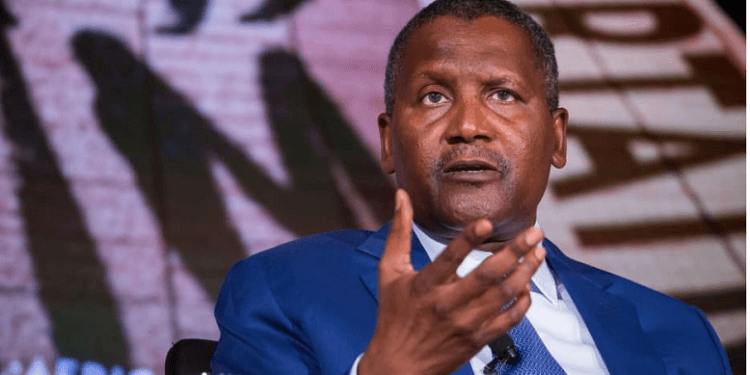
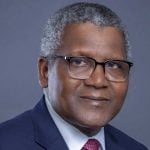


 Share on WhatsApp
Share on WhatsApp
 Share on Twitter
Share on Twitter
 Share on Facebook
Share on Facebook

